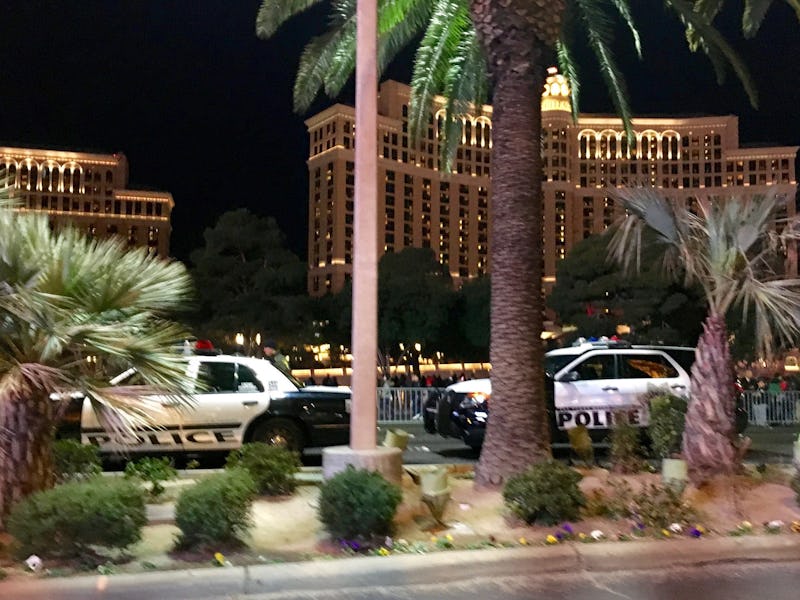CES 2016 Makes Las Vegas a Terrorist Target, but the Police Are Ready
Local law enforcement says it's just another event, but the Consumer Technology Association is paying big bucks to amp up security.

Las Vegas doesn’t purport to represent the future, just the apex of the present. But, this week, the idea of “living for the present” will be temporarily eclipsed by the notion of “living to see tomorrow” as the Consumer Electronics Show rolls into town.
CES 2016 will attract 176,000 attendees to the Las Vegas Convention Center and the city’s charmless downtown. That represents a 28 percent population spike and a thousandfold hype hike as 3,631 companies, including 82 percent of the Fortune 100, pour money, resources, and employees onto the floor of the Las Vegas. CES has grown so rapidly over the last decade that the organizers made a goal of not growing this year. They don’t want to create something unsustainable or dangerous. The show could easily expand, but it couldn’t do so without security becoming an issue.
This year, the security measure are a bit tighter. Some attribute this to the events in Paris and San Bernardino and others to local law enforcement’s learning curve. Attendees will be limited to just two small bags while they roam the 2.4 million-square-foot show floor and no luggage. All bags will be searched and all attendees will go through a metal detector and be patted down before entering the floor. This should, somewhat ironically, incentivize people to leave their prized gadgets — really, everything but their cell phones — in their hotels. The security and law enforcement personnel inside the show will be joined by officers in armored gear walking dogs trained to find explosives.
A LVPD police car on the conference center floor
On Monday, the preparations were in evidence from the airport to the area around the strip. Although CES doesn’t officially start until Wednesday (and it’s mostly press events for the first two days), the baggage claim floor at McCarran International Airport’s Terminal 1 felt curiously well-staffed.
Larry Hatfield, an officer with the Las Vegas Metropolitan Police Department, couldn’t cite numbers, but said that the security presence downtown had been amped up because of the size of shows past. The convention center has its own security, but overtime police officers are paid by the event organizers to beef up patrols and potential response teams. The police department’s Convention Center Area Command doesn’t divert resources and personnel from its own patrols and corporate interests pick up the bill. Hatfield says this is par for the course, that CES is being treated the same way as New Year’s Eve, an event that brought an influx of tourists just last week.
“I hate to say it, but we have stuff happen all the time here in Las Vegas,” says Hatfield. “The Convention Center is something we routinely deal with. And any issues or threats or incidents are dealt with by the full staffing of the LVMPD.”
The notion that CES is just another event is appealing and not unreasonable. Though it is an unusually large show, it doesn’t vastly outstripe the competition, and resources are being allocated to allow its continued growth; the convention center that hosts it is looking into major additions. That said, CES concentrates a lot of economic power, meaning that an attack on the event would be both a human tragedy and a massive market event. The Consumer Technology Association clearly recognizes this. Their statement on security for this year’s show began with the phrase “Following recent global tragedies.”
Still, it’s hard to impress people in Vegas, and that goes for police officers as well. They are out in full force on the strip today and that force will swell as the week progresses. But bigger isn’t necessarily a product of concern or cause for it — not in Las Vegas. More is a way of life here. Anything less would be something to worry about.